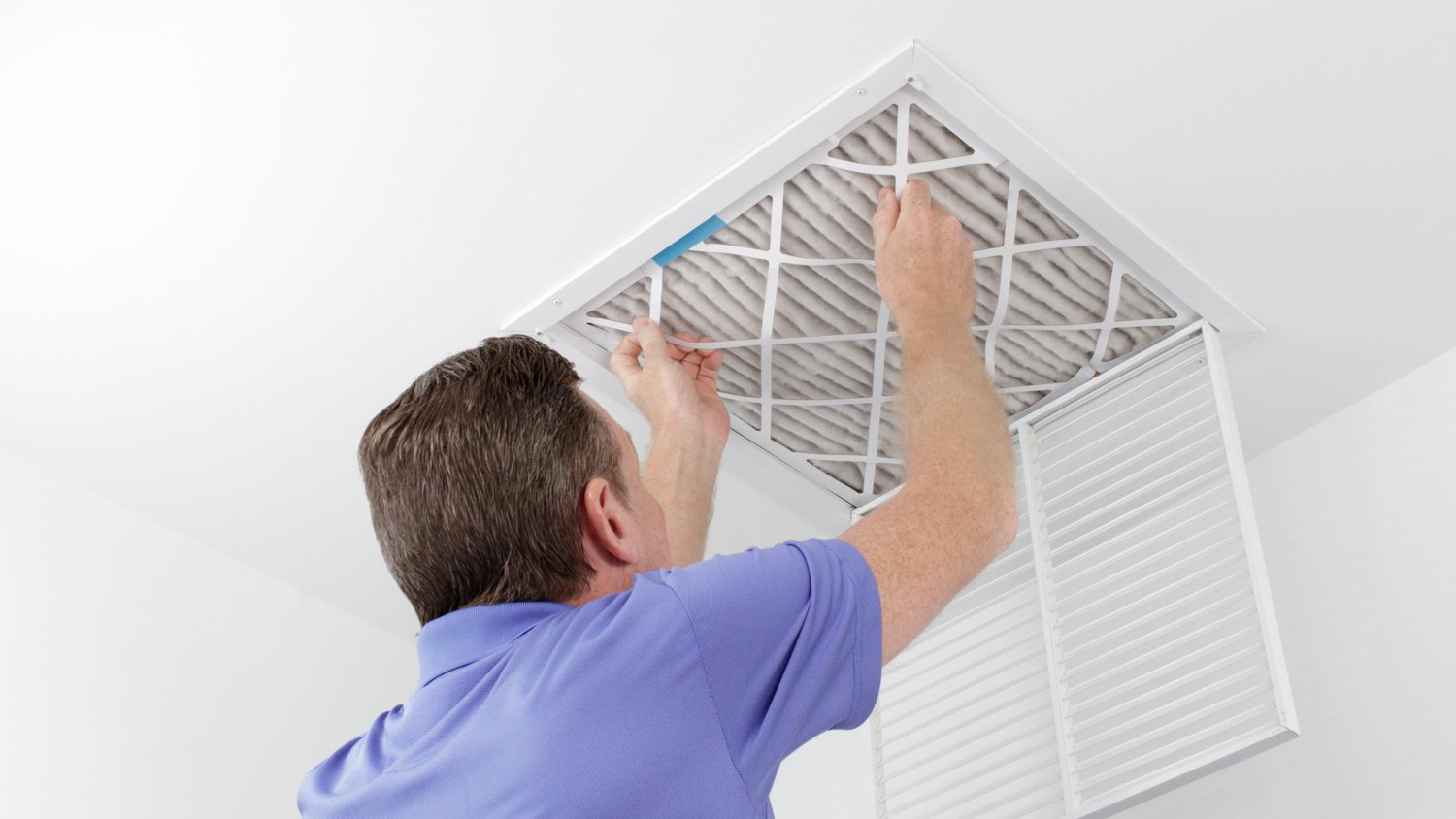9 Air Conditioning Mistakes That Can Cost You
Avoid making these nine air conditioning mistakes to keep your home as cool as possible


Central air conditioning units can turn even the hottest of summer days into a pleasant indoor experience, but they are not without quirks. HVAC units are prone to a host of issues that can increase your utility bill, necessitate costly repairs, and impact the overall air quality in your home.
So what common air conditioning mistakes can turn up the heat in your home? Here are nine mishaps to be on the lookout for as you go about using your AC system.
Mistake 1. Ignoring AC Filters

You should be changing your AC system’s air filters every one to three months, depending on how often you use your system and the manufacturer’s instructions. Dirty air filters can lead to poor airflow and, in some cases, cause the unit’s evaporator coil to freeze up. A filthy filter can add 5 to 15% to your monthly AC bill, so keeping on top of this task is crucial to keeping energy costs down.
Luckily, replacement filters are pretty cheap, at around $10. If you have a ductless “split” AC unit, you can clean the filter instead of replacing it. Just wipe it down with a rag or microfiber cloth at regular intervals.
Mistake 2. Blocking Vents
Vents are not the most attractive element in a home, but when you try to hide them beneath furniture or behind drapes, the system isn’t getting the airflow it needs to run efficiently and maintain a comfortable temperature. Keep them uncovered and dust them often for a healthy, more efficient HVAC system.
Mistake 3. Closing Vents and Closing Doors
Contrary to popular belief, it is actually a bad idea to close vents and keep doors shut to try and make your AC more efficient. Closing off rooms and vents can decrease the efficiency of the air conditioning system and even cause humidity problems. Air conditioning systems work to cool the whole home, so disrupting that process with closed doors and vents can actually worsen the overall performance of your HVAC system.
Instead of creating partitions within your home, raise the thermostat a bit or use curtains and blinds to conserve energy.
Mistake 4. Using a Decorative Thermostat Cover
There are plenty of decorative thermostat covers available for purchase, though you should avoid using one. A decorative thermostat cover means it won’t be able to accurately read the indoor temperature, making the system run inefficiently and compromising indoor comfort levels.
While you are at it, avoid setting lamps, televisions, stereos, and other hot appliances near the thermostat. These items can accidentally drive up the temperature reading and overwork the air conditioner. A thermostat is a highly delicate instrument, after all.
Mistake 5. Neglecting Household Fans
Fans can be your air conditioning unit’s best friend. They help to keep cool air moving throughout your home, thus removing some of the burden from the AC unit. Be sure to properly position standing fans to maximize airflow and keep ceiling fans running whenever the air conditioning is on.
As a note, remember to set your ceiling fans to run counterclockwise during the summer. This strategy will push cool air down, create a breeze, and force hot air to the ceiling.
Mistake 6. Ignoring Coils
Just as the filter becomes dirty with use, so does the air conditioner's evaporator coil and condenser coil. As the evaporator coil collects dirt, airflow will reduce, and the coil’s ability to absorb heat will be hampered. Check your evaporator coil every year for dirt and clean if necessary.
The evaporator is not always readily accessible, so check the operation manual for specific details on its location. You will likely need a flashlight and a screwdriver, as you’ll have to open some panels on the AC unit.
An outdoor condenser coil can also pick up dust, debris, and dirt, especially if you place it near foliage. Take a look at the coil’s fins and check for any buildup, cleaning if needed. While you are removing debris, trim back foliage from the condenser coil to allow for adequate airflow.
Mistake 7. Setting the Thermostat Too Low

It is all too tempting to “bury the needle” during the dog days of summer, setting the thermostat as low as it can go. This air conditioning mistake will severely tax your system, however, so exercise caution when setting the temperature.
Try to keep your thermostat somewhere in the high 70s if you can handle it. You’ll reduce your air conditioning bill by 3% for every degree you raise the temperature, not to mention the environmental benefits of reduced energy consumption.
Mistake 8. Using the AC When Nobody is Home
If you keep the air conditioning running when nobody is around to appreciate it, you will essentially be throwing money away. Make a habit out of turning up the thermostat whenever you leave the house. You can also invest in a programmable or smart thermostat to eliminate some of the guesswork.
Mistake 9. Avoiding Annual Service Checks
It is extremely important to conduct an annual service check on your AC system. This can help to extend your unit’s lifespan and save up to 15% a month on your air conditioning bill. A local HVAC pro will be able to spot small problems before they grow into more costly and frustrating issues.





- Furnace Repair
- Air Conditioning Repair
- HVAC Repairs
- Furnace Installation
- Wood & Pellet Stove Repair
- Dehumidifier & Humidifier Repair
- Heat Pump Companies
- Swamp Cooler Repair
- Wood Stove Services
- HVAC Companies
- Commercial A/C Repair
- Geothermal Installation
- Air Conditioning Installation
- Boiler Repair
- 24 Hour Furnace Repair
- Geothermal Repair
- Heat Pump Repair
- Humidifier Installation
- Thermostat Repair
- Thermostat Installation
- Nest Installation
- Heating & Cooling
- Heating Repair
- Furnace Cleaning
- Furnace Tune-Up
- HVAC Technicians
- Subcontractors
- Furnace Maintenance
- Plumbing & Heating Companies
- Wood Stove Inspection
- Mini Split Installation
- Wall Heater Repair
- Duct Installers
- 11 Reasons Your AC Is Blowing Hot Air
- 9 Things to Do Before Turning On Your AC for the Spring
- 13 Cool Tips to Reduce Air Conditioning Costs This Summer
- All the Parts of an HVAC System Explained
- Does Closing Doors Help Air Conditioning?
- What to Do if Your Evaporator Coil Freezes: 6 Steps to Try
- How Do I Keep My Home's Second Floor Cool?
- 9 Summer HVAC Tips to Stay Cool and Save Money
- What Is the Best Temperature to Set Your Air Conditioner to in the Summer?
- Adding Central Air to Your House: Can You Install AC in Your Home?















